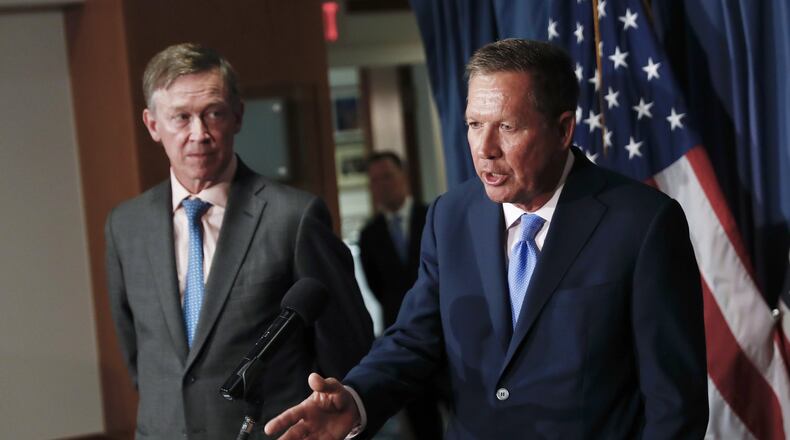RELATED: Kasich, Biden to team up for talk
But on the program CNN Newsday Tuesday, Kasich said: “If my country called me and it was practical, I would have to very seriously think about it. But, right now, I’m not out there trying to create delegates in the states or anything like that. I don’t know what the future is going to bring. I want to be a voice to help our country come together, because that is when we are strongest … It’s in the hands of the Lord.”
Credit: DaytonDailyNews
If Kasich runs as a Republican, he’ll join a list that includes Ronald Reagan, Pat Buchanan, Ted Kennedy and Eugene McCarthy — candidates who challenged presidents from their own party.
But if, as some believe, he will run as an independent, that would mean he carries his challenge through all the primaries, the conventions and into November.
That’s a whole lot of talk shows.
Here are some notable independent challenges over the past several decades:
- 1948: States' Rights Democratic Party (otherwise known as the Dixiecrats) candidate Strom Thurmond ran in the famous Dewey v. Truman race that had the Chicago Tribune erroneously declaring Dewey the winner. Thurmond wasn't a huge factor, but he did win four southern states and 39 votes in the Electoral College.
In this July 2, 1980 file photo, Independent presidential candidate Rep. John Anderson of Illinois ponders a question from reporters during a press conference in Washington. (AP Photo/Ira Schwarz)
Billionaire Ross Perot ran for president in 1992 and 1996. In 1992, the populist won 19 percent of the vote, making him one of the most successful third-party candidates. He later formed the Reform Party and ran again in 1996 but won just eight percent of the vote.
About the Author
